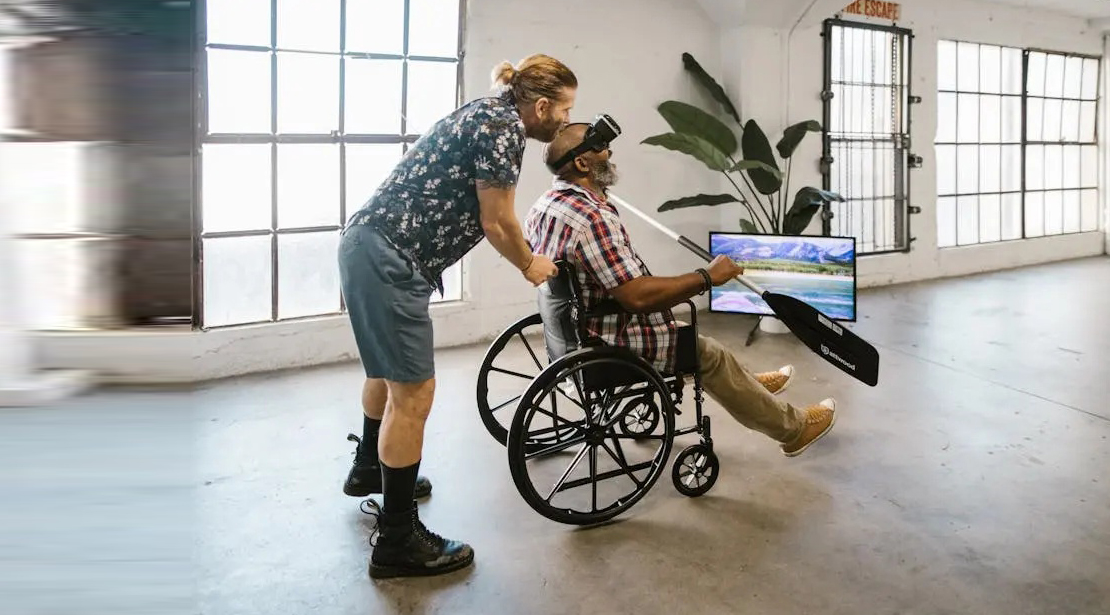Virtual reality (VR) is emerging as a promising tool for improving the quality of life for dementia patients. This innovative technology allows individuals to immerse themselves in enriching and engaging experiences, aiding cognitive function and emotional well-being. In this blog, we’ll explore the various benefits that virtual reality offers to patients living with dementia.
Enhancing Cognitive Function
Virtual reality can significantly enhance cognitive function in dementia patients. By engaging them in immersive environments, it stimulates their brain, encouraging them to think, remember, and problem-solve. This mental engagement can help slow cognitive decline.
One specific way that VR does this is through memory exercises. Patients can participate in guided activities that trigger memories, utilizing nostalgic visuals and familiar sounds. This method often leads to moments of recognition and joy, fostering a positive atmosphere.
Additionally, the safe environment of virtual reality allows patients to practice and refine cognitive skills without fear of failure or embarrassment. This freedom can lead to increased confidence and a sense of achievement, which is crucial for their overall well-being.
Engaging with VR not only aids in memory but also enhances attention spans. When immersed in an interactive experience, patients often find it easier to concentrate on tasks, a significant boost that can translate into daily life activities.
Improving Emotional Well-being
The emotional benefits of virtual reality for dementia patients cannot be overlooked. Engaging experiences can evoke positive memories that lead to feelings of happiness and nostalgia. This emotional engagement is vital for patients who often struggle with feelings of isolation or sadness.
VR offers a platform for emotional connection, allowing dementia patients to experience shared moments with family members. For example, they can visit a virtual representation of a place that holds significance in their lives, like a childhood home or a favorite vacation spot. These shared experiences can strengthen bonds between patients and their loved ones.
Moreover, virtual reality can serve as a distraction from confusion and anxiety that often accompany dementia. By providing calming environments, such as serene beaches or peaceful forests, patients can escape their immediate worries, resulting in a marked improvement in their emotional state.
Through engaging, positive experiences, virtual reality can help reduce agitation and promote relaxation. Patients often find themselves feeling more grounded and connected to reality, enjoying moments of peace amid the challenges they face.
Facilitating Social Interaction
Social interaction is crucial for dementia patients, and virtual reality can help bridge gaps in communication. Virtual environments provide opportunities for patients to interact with others, whether it’s through multiplayer games or shared scenic experiences.
These interactive scenarios encourage conversation and collaboration, engaging patients in ways that traditional methods may not. Whether teaming up for a virtual puzzle or exploring a foreign city together, these shared activities foster a sense of community and belonging.
Additionally, virtual reality can breakdown barriers caused by mobility issues or social anxiety. Patients can connect with others in a comfortable, familiar environment, allowing them to forge connections that they might struggle with in real-life settings.
The positive impact of enhanced social interaction is supported by improved mental health outcomes. Patients who engage socially through VR report feeling less lonely and more valued, which can play a significant role in improving their overall quality of life.
Supporting Caregiver Relationships
Virtual reality also plays a crucial role in supporting caregiver relationships with dementia patients. By participating in VR activities together, caregivers can foster more meaningful interactions with the patients they support.
This joint engagement in enjoyable experiences creates opportunities for caregivers to bond with their patients in ways that traditional methods cannot achieve. For instance, a shared venture into a virtual nature walk can ignite conversation and storytelling, enriching their relationship.
Additionally, virtual reality allows caregivers to gain insights into the patients’ emotional states. Understanding how a patient reacts to different VR scenarios can guide caregivers in providing better emotional support and companionship.
Furthermore, as caregivers incorporate virtual reality into their routines, they often find themselves less stressed and more capable. Having effective tools at their disposal to connect with their patients allows them to provide enhanced care and foster a positive environment.
Final Thoughts
In summary, the integration of virtual reality into therapeutic practices for dementia patients offers a multitude of benefits, including enhanced mental stimulation, emotional connection, and improved caregiver relationships. As technology continues to advance, its potential to support those affected by dementia will only increase, paving the way for more engaging and effective interventions.




